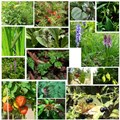
Agribusiness is one of the fastest-growing sectors of the economy. In India, the agriculture market is projected to reach USD 372.94 billion by 2024 and is anticipated to grow to USD 473.72 billion by 2029, reflecting a compound annual growth rate (CAGR) of 4.90% over the forecast period. Let us explore the significance of agribusiness:
What is Agribussiness?
Agribusiness refers to the branch of agriculture that includes all economic activities related to farming, encompassing the production, processing, and distribution of agricultural goods. It plays a crucial role in the economy for several reasons:
-
Employment Generation: Agribusiness creates numerous jobs in retail, distribution, and other sectors, leading to increased employment opportunities.
-
Economic Contribution: Through activities like production and processing, agricultural goods can be exported, which contributes to the GDP of the country. By ensuring a stable and consistent food supply, agribusiness also plays a vital role in food security.
-
Technological Integration: Agribusiness helps in integrating technological advancements in agriculture, thereby improving efficiency and productivity.
-
Revenue Generation: Agribusiness generates significant revenue, particularly from exports.
Types of Agribusinesses
There are several types of agribusinesses, each playing a unique role in the agricultural sector:
-
Dairy Farming: Involves the breeding and raising of dairy cows or other animals to produce milk and dairy products such as cheese, yogurt, and butter. Dairy farming can be done on various scales. Programs like the Rashtriya Gokul Mission have been introduced to support farmers with expenses incurred in dairy farming.
-
Beekeeping: Also known as apiculture, beekeeping involves the maintenance of bee colonies in hives to produce honey, beeswax, and other products. It is crucial for pollination and supports the growth of various crops. Government schemes such as the National Beekeeping & Honey Mission (NBHM) make it easier for farmers to bear the expenses of beekeeping.
-
Fertilizer Dealership: Involves the supply and sale of fertilizers to farmers and agricultural businesses. Fertilizers provide essential nutrients to plants, boosting their growth and productivity. Government schemes such as transportation subsidies and establishment grants help farmers obtain and use fertilizers effectively.
-
Organic Farming: Relies on natural processes, composting, and organic inputs to maintain soil health and produce food, avoiding synthetic chemicals, pesticides, and genetically modified organisms (GMOs). Schemes like Paramparagat Krishi Vikas Yojana (PKVY) and Mission Organic Value Chain Development for the North Eastern Region (MOVCDNER) provide end-to-end support to farmers engaged in organic farming, from production to processing, certification, marketing, and post-harvest management.
-
Hydroponics: A method of growing plants without soil, using a nutrient-rich water solution to deliver nutrients directly to plant roots. It can be used to grow a variety of crops and is often employed in controlled environments like greenhouses. Government schemes provide support for infrastructure development and input subsidies for hydroponic farming.
-
Cash Crops: These are agricultural crops grown specifically for sale rather than subsistence. Examples include coffee, cocoa, tea, and sugarcane. Cash crops have high value in international markets, contributing significantly to export earnings.
-
Fish Farming: Also known as aquaculture, fish farming involves breeding and raising fish in controlled environments such as ponds, tanks, or cages, providing a sustainable source of fish for human consumption. The Pradhan Mantri Matsya Sampada Yojana (PMMSY) was launched by the Department of Fisheries, Ministry of Fisheries, Animal Husbandry, and Dairying to promote the ecologically healthy, economically viable, and socially inclusive development of the fisheries sector in India.
-
Livestock Rearing: Involves the breeding and raising of animals for various purposes, including meat, milk, wool, etc. This can include cattle, sheep, goats, pigs, and other animals, managed on farms of varying sizes. Poultry farming, which involves raising chickens, turkeys, ducks, or other birds primarily for meat or eggs, also falls under this category. It can be intensive or free-range, depending on the methods used. Several government programs, such as the National Livestock Mission and Animal Husbandry Infrastructure Development Fund, support these activities.
-
Contract Farming: Involves an agreement between a farmer and a buyer to produce a particular crop. The buyer provides materials such as seeds and fertilizers, reducing the risk for the farmer and ensuring access to necessary resources. NABARD (National Bank for Agriculture and Rural Development) has developed a special refinance package for contract farming arrangements, aimed at promoting increased production of commercial crops and creating marketing avenues for farmers. NABARD's initiatives include financial interventions and special refinance packages for financing farmers engaged in contract farming within and outside Agri-Export Zones (AEZs).
-
Medical Herb Farming: Involves growing herbs and plants used for medicinal purposes. These herbs can be used in traditional medicine, supplements, or pharmaceuticals and are cultivated for their therapeutic properties. To encourage the growth of medicinal plants, the Ministry of AYUSH has put into place the National AYUSH Mission's (NAM) Centrally Sponsored Scheme.
-
Vertical Farming: A modern farming technique where crops are grown in vertically stacked layers or towers. This method often uses controlled environments like greenhouses, allowing for efficient use of space and resources. The Vertical Garden Scheme, initiated by the Kerala State Horticulture Mission (SDHM), provides a 75% subsidy to beneficiaries for the total cost of establishing the garden.
Agribusiness is a dynamic and vital sector that significantly contributes to the economy, employment, and food security. By integrating modern technologies, fostering innovation, and promoting sustainable practices, agribusinesses are not only enhancing productivity but also creating new opportunities for farmers and entrepreneurs alike. The various government schemes and support systems in place further encourage the growth and development of agribusinesses across India. As this sector continues to evolve, it will play an increasingly important role in shaping the future of the global agricultural economy.
















